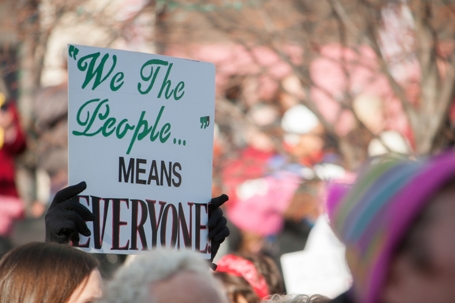Attending a protest or demonstration is a powerful way to make your voice heard, but it’s important to understand your rights and responsibilities before you join others in Dallas, TX. Whether you’re an experienced activist or attending a protest for the first time, knowing your legal protections can help you stay safe. For immigrants, including undocumented individuals, there are additional considerations to keep in mind to avoid unnecessary risks.
This guide will cover the basics of protester rights in Dallas, offer advice for staying safe during demonstrations, and provide specific tips and protections for immigrants.
Understanding Your Right to Protest in Dallas
Freedoms Protected by Law
The First Amendment to the U.S. Constitution gives everyone the right to peacefully assemble, speak freely, and petition the government. This means you can legally participate in protests, marches, and rallies in public spaces, such as sidewalks, parks, and streets (when permitted).
However, Texas law also sets limits to ensure public safety. For example, while you may advocate for a cause, blocking roadways or disrupting businesses without a permit may lead to legal consequences.
Permits and Restrictions
Some protests may require permits, particularly if they block traffic, use amplified sound, or gather large crowds in specific areas. If you’re attending a demonstration in Dallas, check whether the organizers have secured the necessary permits to avoid potential issues with law enforcement.
What You Cannot Do at a Demonstration
While the law protects your right to protest, it does not allow conduct such as violence, destruction of property, or incitement to commit illegal acts. Engaging in such behavior can lead to arrest, even during an otherwise lawful protest.
Staying Safe During Demonstrations
Attending a protest comes with risks, so taking steps to protect yourself is vital.
Dress and Prepare Wisely
Wear comfortable clothing and sturdy footwear, as you may be walking or standing for long periods. Avoid bringing valuables and carry only essentials, such as your ID, a fully charged phone, water, and any necessary medication.
If you suspect there may be a heavy police presence or potential unrest, wearing heat-resistant or plain clothing (void of logos or politically charged messages) can help you avoid becoming a target.
Stay Calm and Alert
During protests, law enforcement may issue orders for crowd dispersal or other instructions. Listen attentively, and if you feel unsafe, calmly exit the area. Knowing your surroundings and identifying safe exit routes in advance can also be helpful.
Know Your Rights During Police Interactions
If you are stopped by police during a demonstration, remember that you have the right to remain silent. You are not required to consent to a search of your belongings unless they have a warrant. Politely asking, “Am I free to go?” can clarify whether you are being detained or can leave.
Legal Protections for Immigrants
For immigrants, including those who are undocumented, protesting carries additional risks. It’s essential to balance your desire to advocate for change with the need to safeguard your immigration status.
Understanding Potential Risks
Protests can sometimes lead to arrests, even for peaceful participants. If you are detained and your immigration status is revealed, it could have serious consequences, including deportation. Knowing how to respond is critical if you are approached by law enforcement or immigration officers.
Protect Your Identity
If possible, carry a valid ID, such as your driver’s license, but avoid bringing unnecessary documents that may reveal your immigration status. It is also not recommended that you share your immigration status with others at the protest.
Know Your Rights Regardless of Status
Even as an undocumented immigrant, you still have rights. If approached by immigration authorities, you can remain silent. Carrying a “Know Your Rights” card, which asserts your refusal to answer questions or consent to a search, can be a helpful tool.
Reach Out to Legal Support if Arrested
If you face legal trouble during a protest, contact an attorney immediately. For immigrants, having legal representation familiar with criminal and immigration law is especially important to protect your rights and status.
Concluding Advice for Protesters in Dallas
Protesting is a fundamental way to advocate for change, but understanding your rights and limitations is key to ensuring a peaceful and productive experience. For immigrants, being extra cautious and prepared can help reduce risks while participating in demonstrations.
If you have questions about your protest rights or face legal issues due to attending a demonstration as an undocumented immigrant, Mathur Law Offices, P.C., can help. Based in Dallas, we have the experience to guide you through complex legal situations, including those involving immigration and protest law.
Contact us today to learn how we can assist with your case.

